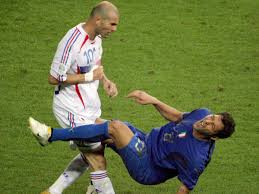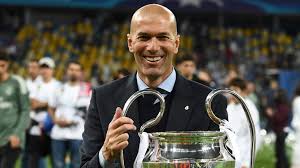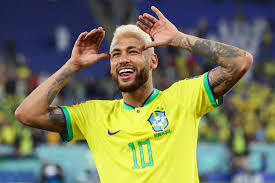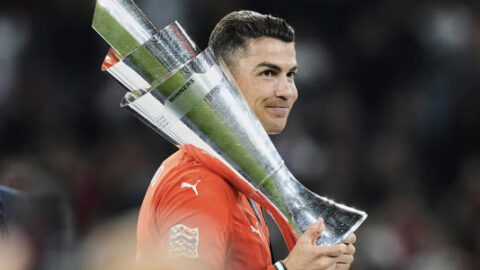The Magical Journey of Lionel Messi: How a Small Boy from Rosario Became Football’s Greatest Artist
In the world of football, where giants clash and legends are born, sometimes the most extraordinary stories come in the smallest packages. Lionel Andrés Messi’s tale isn’t just about becoming the greatest footballer of all time – it’s about overcoming impossible odds, staying true to your roots, and proving that size truly doesn’t matter when you have a heart full of dreams.
The Early Days in Rosario: Where Dreams Begin
Born on June 24, 1987, in Rosario, Argentina, Lionel Messi entered the world as the third child of Jorge Messi, a steel factory manager, and Celia Cuccittini, who worked in a magnet manufacturing workshop. The Messi household was loving but modest, where every peso counted and football was more than just a game – it was a passion that ran through the family’s veins.
From the moment little Leo could walk, a football seemed glued to his feet. His grandmother, Celia, was his biggest supporter, driving him to practice sessions and cheering from the sidelines. She would often tell him, “One day, you’re going to be the best player in the world.” Tragically, she passed away when Messi was just 10, but her words would echo in his heart throughout his journey to greatness.
At age four, Messi joined his local club, Grandoli, where his father coached. Even then, it was clear this wasn’t an ordinary child. While other kids his age were still learning to kick the ball properly, Messi was already dancing past opponents twice his size, leaving spectators speechless.
The Growth Hormone Challenge: When Dreams Meet Reality
By age 10, Messi was dominating youth football in Rosario, but there was a problem that threatened to end his dreams before they truly began. He was diagnosed with growth hormone deficiency, a condition that would keep him significantly smaller than his peers. The treatment was expensive – around $1,000 per month – a fortune for a working-class family in Argentina.
This period tested the Messi family’s resolve like nothing else. They tried everything, from seeking help from his local club, Newell’s Old Boys, to exploring options with River Plate in Buenos Aires. When these avenues led nowhere, it seemed like Leo’s football dreams might be over before they really started.
But sometimes, when one door closes, another opens in the most unexpected way. That door would lead to Barcelona, Spain, and change not just Messi’s life, but the entire landscape of world football.
The Barcelona Miracle: A Napkin That Changed History
In September 2000, at just 13 years old, Messi traveled to Barcelona for a trial that would become the stuff of legend. Carles Rexach, then Barcelona’s sporting director, watched this tiny Argentine boy play for just a few minutes before he knew he was witnessing something extraordinary.
The story goes that Rexach was so convinced of Messi’s talent that he wrote the first contract on a napkin at a tennis club, afraid that if they waited, they might lose this magical player to another club. Barcelona agreed to pay for Messi’s growth hormone treatment and relocate his entire family to Spain.
Moving to Barcelona wasn’t easy for the teenage Messi. He was homesick, struggled with the language, and was still the smallest player on every team. But La Masia, Barcelona’s famous youth academy, became his second home. The academy’s philosophy of beautiful, possession-based football was perfect for Messi’s natural style.
Breaking Through: From La Masia to Camp Nou
Messi’s progression through Barcelona’s youth ranks was meteoric. He was promoted through age groups at an unprecedented pace, often playing with boys two or three years older. His coaches knew they had something special, but even they couldn’t have predicted what was coming.
On October 16, 2004, at just 17 years and 114 days old, Messi made his first-team debut under Frank Rijkaard. He became the third-youngest player ever to play for Barcelona’s first team. That moment, stepping onto the Camp Nou pitch for the first time as a Barcelona player, was the culmination of years of sacrifice, determination, and unwavering belief.
His first goal came in May 2005 against Albacete, assisted by Ronaldinho – the Brazilian superstar who had taken the young Argentine under his wing. The goal was later disallowed, but Messi’s tears of joy showed just how much that moment meant to him.
The Ronaldinho Era: Learning from the Best
During his early years at Barcelona, Messi had the privilege of playing alongside Ronaldinho, then considered the world’s best player. The Brazilian took Messi under his wing, teaching him not just about football, but about handling pressure and enjoying the beautiful game.
Ronaldinho often said that Messi would become better than him, and he was proved right sooner than anyone expected. As Ronaldinho’s star began to fade, Messi’s was rising rapidly. The transition of leadership from the Brazilian maestro to the Argentine prodigy was seamless and beautiful to witness.
The Pep Guardiola Revolution: Perfect Harmony
When Pep Guardiola took over Barcelona in 2008, many wondered how the former midfielder would handle superstars like Messi. The answer came in the form of the most dominant football team the world has ever seen. Guardiola built his entire system around Messi’s unique abilities, moving him from the wing to a false nine position that confused defenders and delighted fans.
Under Guardiola, Messi flourished like never before. The 2008-09 season saw Barcelona win an unprecedented treble, and Messi was at the heart of everything beautiful about that team. His understanding with teammates like Xavi and Iniesta reached telepathic levels, creating football that was more art than sport.
The pinnacle came in 2009 when Messi won his first Ballon d’Or at just 22 years old. Sitting next to his parents at the ceremony, tears streaming down his face, he dedicated the award to his grandmother Celia, whose words of encouragement had carried him through his darkest moments.
Record-Breaking Glory: Redefining What’s Possible
What followed was a period of unprecedented individual and collective success. Messi didn’t just break records; he obliterated them. The 2011-12 season saw him score 91 goals in a calendar year, surpassing Gerd Müller’s seemingly untouchable record of 85 goals set in 1972.
His playing style during these peak years was mesmerizing. Defenders knew exactly what he was going to do – cut inside from the right, accelerate past them, and either score or create a goal – but they still couldn’t stop him. His low center of gravity, combined with incredible ball control and vision, made him virtually unstoppable.
The individual accolades poured in: four consecutive Ballon d’Or awards from 2009 to 2012, making him the first player to achieve such a feat. Each ceremony was emotional, with Messi always crediting his teammates, family, and coaches for his success.
The International Heartbreak: So Close, Yet So Far
While Messi was conquering Europe with Barcelona, his relationship with the Argentine national team was more complicated. Despite his club success, international glory remained elusive. The 2014 World Cup final in Brazil was particularly painful – Argentina lost 1-0 to Germany in extra time, with Messi coming agonizingly close to the one trophy that had eluded him.
The Copa América finals of 2015 and 2016 brought more heartbreak, both lost on penalty shootouts. After the 2016 defeat to Chile, an emotionally drained Messi announced his retirement from international football, saying he wasn’t “meant” to win with Argentina. The entire nation mourned, and Messi’s pain was palpable.
Fortunately, this retirement was short-lived. The love for his country and the support of Argentine fans convinced him to return, though the pressure and criticism he faced for his international struggles showed the human side of this footballing god.
Life Beyond Football: The Family Man
Despite his global fame, Messi has remained remarkably grounded, largely thanks to his childhood sweetheart, Antonela Roccuzzo. They knew each other from childhood in Rosario – she was the cousin of his best friend, Lucas Scaglia. Their love story is one of loyalty and genuine affection, away from the spotlight and media circus.
Messi and Antonela married in 2017 in what was dubbed the “wedding of the century” in Rosario. They have three sons: Thiago, Mateo, and Ciro, and Messi’s social media posts about his family show a side of him that’s tender, playful, and completely devoted to fatherhood.
His children often accompany him to training and matches, and seeing Messi interact with them reveals the man behind the magic – someone who values family above all else and wants to give his children the normal childhood he never had.
The Neymar Era and MSN: A New Chapter
The arrival of Neymar in 2013 created one of football’s most feared attacking trios. MSN – Messi, Suárez, and Neymar – terrorized defenses across Europe. The chemistry between the three was instant, and their understanding on the pitch was almost supernatural.
The 2014-15 season was the pinnacle of MSN’s success, with the trio scoring 122 goals combined as Barcelona won another treble. Messi’s role evolved again, becoming more of a playmaker while maintaining his goal-scoring threat. His assist numbers during this period were as impressive as his goals, showing his complete understanding of the game.
The International Redemption: Copa América Glory
After years of heartbreak with Argentina, redemption finally came in 2021. The Copa América in Brazil provided the perfect stage for Messi to finally win a major international tournament. The journey wasn’t easy – Argentina lost their opening match to Colombia – but Messi’s leadership and determination were evident throughout.
The final against Brazil at the Maracanã was the stuff of dreams. Playing against the hosts, in their own backyard, Argentina won 1-0 with Messi finally lifting the trophy that had eluded him for so long. The images of him crying with joy, hugging his teammates, and celebrating with the Argentine fans were emotional for everyone who had followed his international journey.
This victory changed everything. The criticism melted away, replaced by recognition that Messi had finally conquered the one mountain that seemed impossible to climb.
The PSG Adventure: New Challenges, Same Magic
In August 2021, football was shocked when Messi left Barcelona after 21 years. Financial constraints meant the club couldn’t renew his contract, leading to one of the most emotional press conferences in sports history. Seeing Messi cry as he said goodbye to the only professional club he had ever known was heartbreaking for fans worldwide.
Paris Saint-Germain offered a new chapter, reuniting him with Neymar and introducing him to Kylian Mbappé. While his time in Paris was successful, winning Ligue 1 titles, it never felt quite right. Messi was a stranger in a strange land, his magic somehow diminished by unfamiliar surroundings.
The World Cup Dream: Qatar 2022 and Ultimate Glory
The 2022 World Cup in Qatar provided Messi with what many believed would be his last chance to win the ultimate prize. At 35, time was running out for the Argentine maestro. What followed was perhaps the greatest individual World Cup performance in history.
Messi carried Argentina through the tournament with performances that reminded everyone why he’s considered the greatest. The final against France was an instant classic – a match that had everything, including Messi scoring twice and completing football by finally winning the World Cup.
The image of Messi holding the World Cup trophy, kissing it with tears in his eyes, became iconic instantly. After all the heartbreak, all the near-misses, he had finally achieved his ultimate dream. The kid from Rosario had conquered the world.
The MLS Revolution: Bringing Magic to Miami
In 2023, Messi surprised the football world again by choosing Inter Miami over other offers. His arrival in Major League Soccer created unprecedented excitement, with ticket prices soaring and global attention focusing on American soccer like never before.
His debut was magical – a last-minute free-kick winner in the Leagues Cup that felt scripted by Hollywood. The “Messi Effect” was immediate, with celebrities flocking to Miami games and MLS experiencing a surge in popularity worldwide.
The Numbers That Define Greatness
Messi’s statistics are mind-boggling. Over 800 career goals, 350+ assists, eight Ballon d’Or awards, and countless other records that may never be broken. But numbers alone don’t capture his impact. He’s the player who made the impossible look routine, who turned football into art.
His playing style evolved throughout his career. The explosive winger became a false nine, then a playmaker, adapting his game as his body aged while maintaining his effectiveness. This evolution showed not just his talent, but his incredible football intelligence.
Beyond Football: Influence and Legacy
Messi’s influence extends far beyond the pitch. The Leo Messi Foundation works to provide education and healthcare access to vulnerable children. His quiet philanthropy, often done without publicity, reflects the humility that has characterized his entire career.
He’s also a global ambassador for UNICEF and has used his platform to raise awareness about important social issues. Despite his fame, he’s remained remarkably scandal-free, focusing on football and family rather than courting controversy.
The GOAT Debate: Settling the Eternal Question
The debate about football’s greatest player has raged for years, with Messi and Cristiano Ronaldo as the main protagonists. Their rivalry elevated both players and the sport itself. While Ronaldo brought power, athleticism, and determination, Messi brought magic, creativity, and pure footballing genius.
The 2022 World Cup victory seemed to settle the debate for many. Messi had finally won the one trophy that some argued was missing from his collection. His complete game – goals, assists, leadership, and moments of pure magic – made a compelling case for his supremacy.
The Continuing Story: What’s Next for the Magician?
As Messi enters the twilight of his career, questions about retirement become more frequent. However, his performances in Miami and with Argentina suggest he still has magic left in those famous left foot. The 2024 Copa América and possibly the 2026 World Cup on American soil remain tantalizing possibilities.
Whatever happens next, Messi’s legacy is secure. He’s the player who made millions fall in love with football, who showed that technique and intelligence can triumph over size and strength. From that small boy in Rosario who needed growth hormones to compete, to the global icon who conquered every possible summit in football, his journey is a testament to the power of dreams, determination, and pure talent.
Lionel Messi didn’t just play football; he redefined it. He showed us that the beautiful game could be even more beautiful when touched by genius. His story continues to inspire young players worldwide, proving that with enough talent, hard work, and belief, even the smallest person can achieve the greatest things.
The boy from Rosario became the king of football, and his reign will be remembered long after the final whistle of his career. In a world of temporary heroes and fleeting moments, Messi’s magic feels eternal – a reminder that some things truly are beautiful beyond words.



